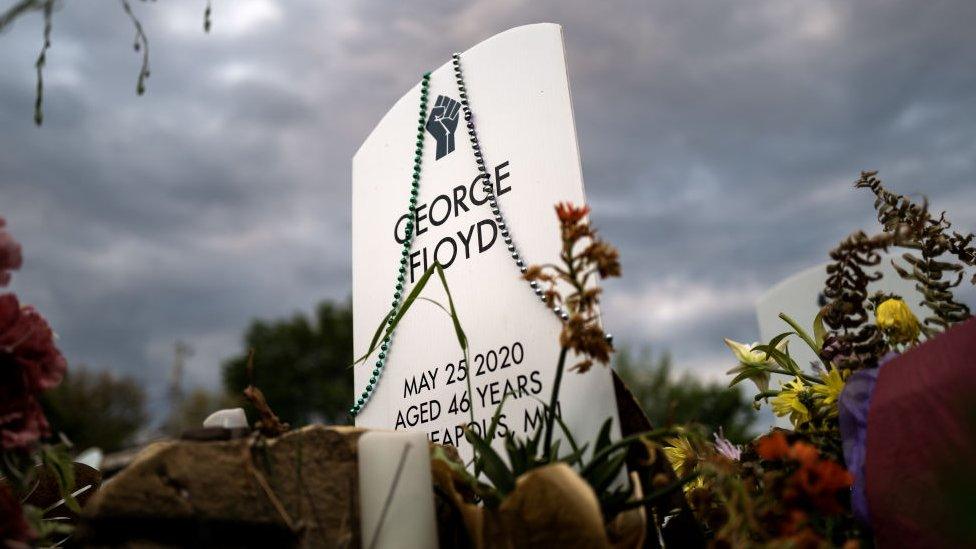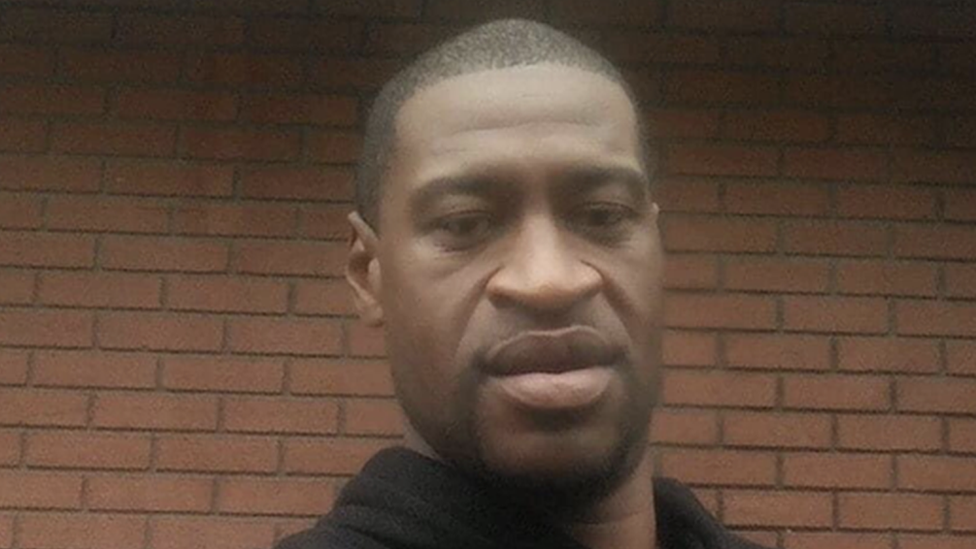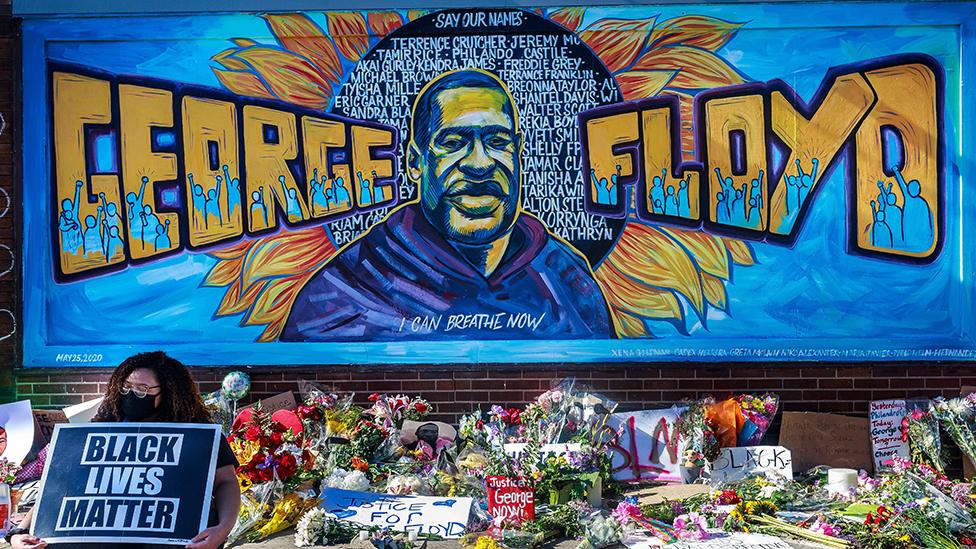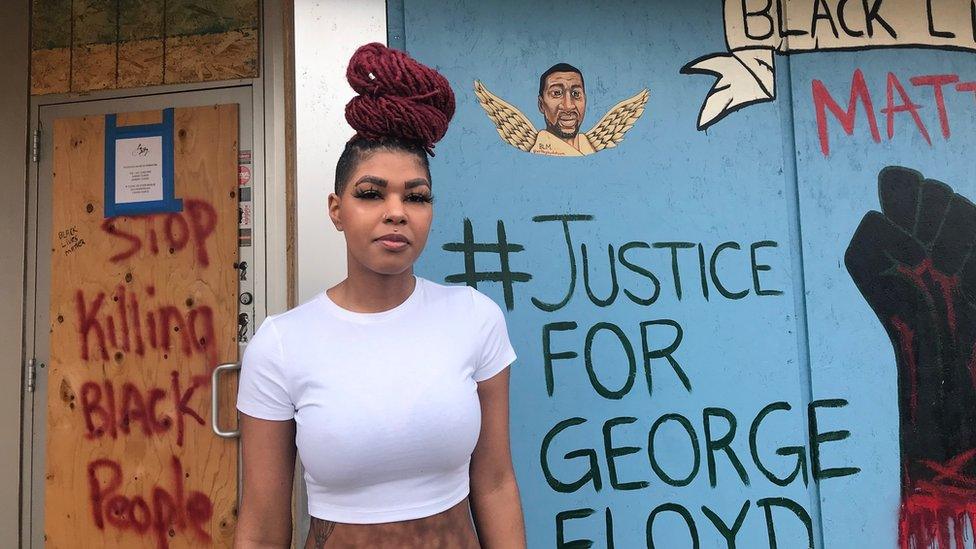Minneapolis police routinely used excessive force, US justice department finds
- Published

The Minneapolis Police Department engaged in a pattern of discrimination against black and Native American people and routinely resorted to "excessive force", a report has found.
The US Department of Justice report says that problems within the MPD "made what happened to George Floyd possible".
The death of Floyd at the hands of police sparked mass protests in 2020.
The investigation was launched a day after the trial of his killer.
US Attorney General Merrick Garland said the department's conduct uncovered in the report "is deeply disturbing, and it erodes the community's trust in law enforcement".
Following the investigations, the city has agreed to negotiate an agreement, known as a consent decree, with the justice department on reforming its police department.
Footage of Floyd's fateful arrest - his neck area was pinned under the knee of convicted ex-officer Derek Chauvin for more than nine minutes - led to racial justice protests nationwide.
The 46-year-old black man was arrested on 25 May 2020 on suspicion of using a counterfeit $20 bill to pay for cigarettes at a corner store in Minneapolis, Minnesota.
"As I told George Floyd's family this morning, his death has had an irrevocable impact on the Minneapolis community, on our country, and the world," Mr Garland said on Friday, as he announced the findings of the federal investigation.
The justice department opened a civil rights investigation into the city's police department in April 2021, one day after Chauvin was convicted of murder and manslaughter.
Three other officers have also since been convicted on federal charges for their roles in the arrest.
The 92-page report concluded that for years city police "used dangerous techniques and weapons against people who committed at most a petty offense and sometimes no offense at all".
It also claimed the MPD had "patrolled neighbourhoods differently based on their racial composition and discriminated based on race when searching, handcuffing, or using force against people during stops".
The report further alleges that the city of Minneapolis sent officers to behavioural health-related emergency calls "even when a law enforcement response was not appropriate or necessary, sometimes with tragic results".
Findings from the report are based on a review of city-provided documents, police incident files and body-camera footage, as well as conversations with officers and local residents.
"Now things have to be different. Now things have to change," the city's mayor Jacob Frey said Friday, standing alongside Mr Garland.
The federal consent decree, overseen by a federal judge, will follow the progress of reforms mandated for MPD by the government.
Several police departments in other cities - including Seattle, Washington and Oakland, California - already operate under consent decrees over alleged civil rights violations of their own.
Such court-enforced oversight was also recommended earlier this year in Louisville, Kentucky, following an investigation into the fatal shooting of Breonna Taylor.
Related topics
- Published16 July 2020

- Published24 May 2021

- Published21 April 2021
